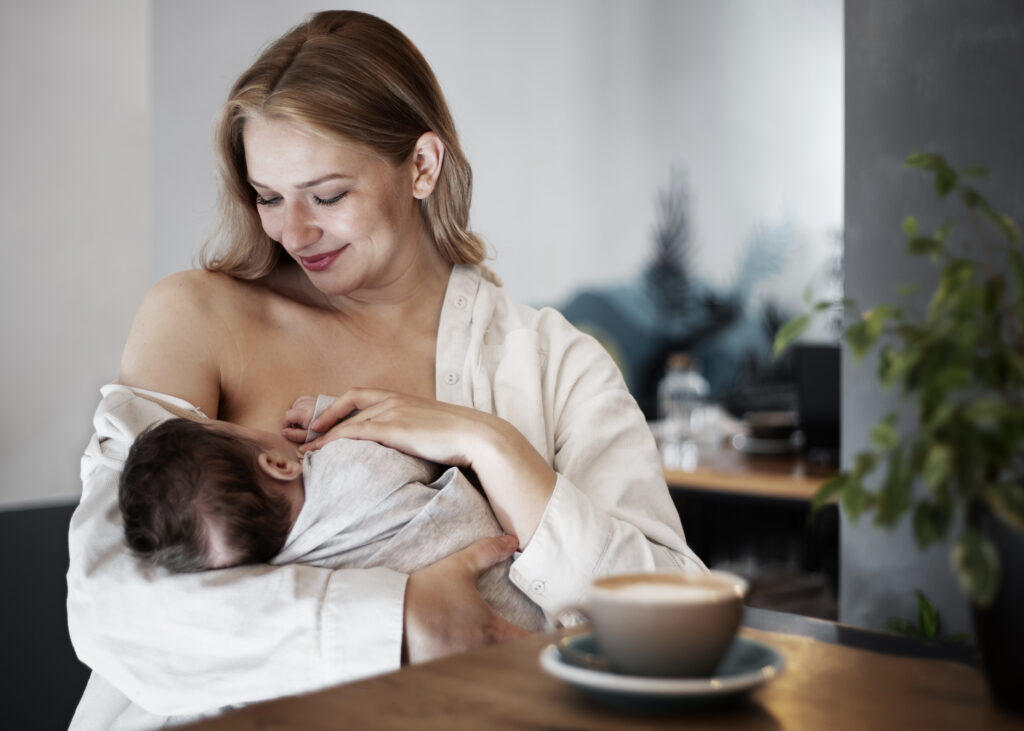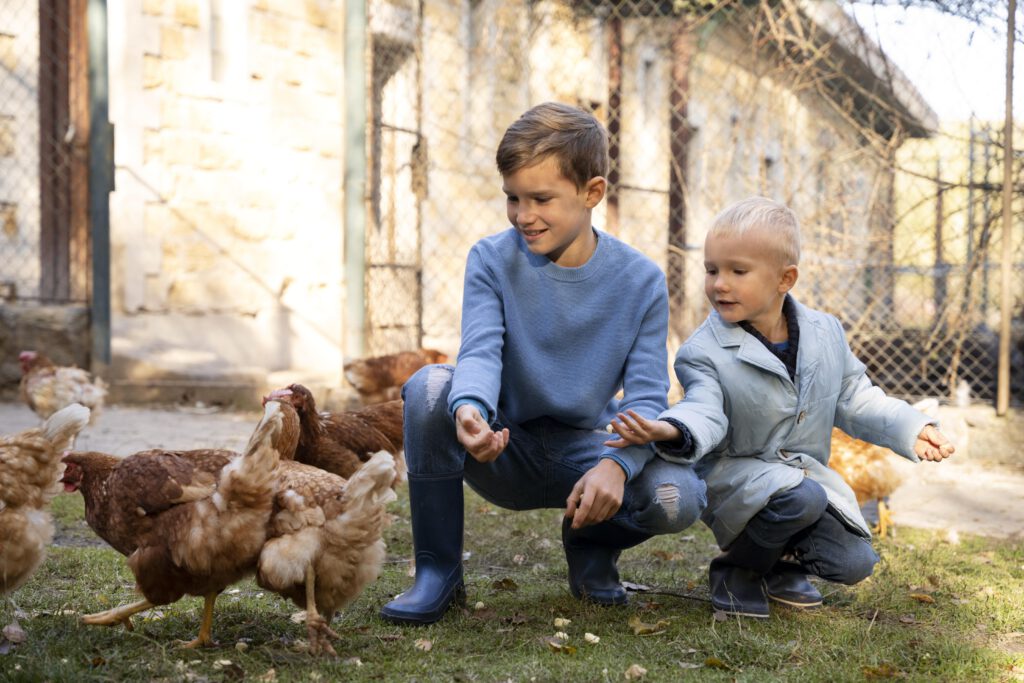For years the Netherlands has been ranked as one of the best countries to raise children — so no wonder many internationals end up having children here!
If you’re living here and are having a child in the Netherlands soon, here are a few things you should know.
1. Fertility treatments in the Netherlands
If you are somehow struggling to become parents (we hear you), be aware that Dutch health care usually covers fertility treatments, if or when needed.

However, this can be a lengthy process.
READ MORE | I tried a Dutch at-home fertility test — here’s what happened
You will need a referral from your family doctor, and from there, you may go to hospitals or centres that are specialised in this. I can highly recommend the kind, knowledgeable and amazing staff at the Reiner de Graaf clinic in Voorburg.
2. Maternity and paternity leave in the Netherlands
As a mother, you are entitled to maternity leave as soon as you’re working.
Mothers in the Netherlands are entitled to 6 weeks of paid pregnancy leave (before the due date) and at least 10 weeks of maternity leave (after childbirth).
This means that mothers in the Netherlands have the right to at least 16 weeks of paid maternity leave in total.

Partners get paternity leave, though not nearly as much, sadly. They are entitled to one week of paid leave and five additional weeks of leave at 70% pay. After that, there is also parental leave.
3. Daycare in the Netherlands
If both of the parents will be working outside the home, you’ll be needing daycare. In the Netherlands, daycare centres are in very high demand.
The general recommendation is to start researching/enrolling your child pretty much as soon as you get a positive pregnancy test as waiting lists are long. You could also choose to leave your child with a gastouder or find a babysitter in the Netherlands.
READ MORE | 8 things you need to know about giving birth in the Netherlands
If both parents work or one works and one studies, you may be eligible for a subsidy, which means the government will compensate you for part of the daycare fees (depending on your total income). You can get an idea of what the amount subsidised will be with this calculator.
4. Kraamzorg (maternity care) in the Netherlands
This very Dutch service is available through most health insurance packages. While it can be very useful, it is not mandatory.
So, what is it? Right after you give birth a nurse/social worker comes to your home for several purposes. The two most important of which are:
- Keeping track of the baby’s growth and general health state and,
- Checking the mother’s recovery is also going well (they check for fever/signs of infection, look at the stitches, feel the uterus as it stretches back down to its original location).
Within this role, the kraamzorg is trained to check for red flags/signs of postpartum depression or other mental health or behaviour issues (eg. addictions) so that they can direct you towards professional help when needed.

They also give all kinds of advice (take it or leave it), show you how to take care of a baby (priceless for first-time parents without any help or grandparents around), help with cleaning, cooking and other household chores.
Some can also help with breastfeeding, or again, direct you to a lactation consultant; take care of older children and do general errands.
READ MORE | The ultimate guide to gynaecology, birth control, and check-ups in the Netherlands
Some kraamzorg companies offer their services in English. I had friends who loved their kraamzorg and other friends who hated it.
Personally, I felt a bit overwhelmed by the idea of having a total and complete stranger at home on those early vulnerable days, and my mom (and mother in law) were around, so we had her come for the minimum hours, but I see how it could be a great help.
5. Consultatiebureau — paediatrician in the Netherlands
So, unlike many other countries, children here are NOT given a paediatrician unless there IS a problem (eg. premature birth or other conditions).
When something medical comes up, you should go to your family doctor and he will refer you to a paediatrician/hospital if it is considered necessary.

All the checkups for growth and vaccinations are given by the nurse and paediatrician at the Consultatiebureau. They will have the first visit at home, as soon as the child is born, again, to screen the parents and home environment.
READ MORE | How to register a birth in the Netherlands
They will screen your baby for genetic conditions (heel prick) and follow their growth until they are teenagers (regular visits are until the age of 4). Also, they will have a “vrije inloop” day in which you can come for advice.
An organisation called Moeders Informeren Moeders runs at different consultatiebureaus and it is great to find and offer support. The thing is, while I think the Consultatiebureau is great as an institution, in principle, you never know what kind of advice you will get.
6. The Dutch school system
Depending on where you live, you will need to register your child for a school either from birth, from the moment they are one, or not until they are three. These rules vary per municipality (gemeente).
For example, in Voorburg, you can enrol your child in as many schools as you like and, because there are so many children and the waiting lists are so long, and you may do so from birth.

However, in The Hague you may only register your child to one school and exclusively when s/he is three years old (this was decided as a result of children having places at school and parents moving cities at the last moment).
Dutch education is public, but there are different types of schools and teaching methods (Montessori, Waldorf, Dalton, etc.) and you may also choose a school with a religious affiliation (Catholic, Christian) or with none.
READ MORE | Primary schools in the Netherlands: a guide for expat parents
Nevertheless, the main criteria for schools to accept your child will be the postal code, so if you really have a mindset on a school, I recommend moving right next to it. Waiting lists are long and it is just a matter of luck to get where you want.
There are also private/international schools like the European, International, British or American schools for which different rules apply. The teaching language may be different than Dutch, something to consider depending on how long you are planning to live in the Netherlands.
7. Playgroups, museums, activities, parks and petting farms for children in the Netherlands
I have to say the Netherlands is really a child-friendly place. There are always plenty of things to do with children — from petting zoos to science exhibitions; a lot of museums (like the children literature museum in The Hague) have been specially designed for kids.

Whenever the school holidays roll around, all kinds of activities for kids start popping up across the Netherlands, such as art festivals for children of all ages with dance, theatre, painting workshops.
Some libraries organise readings for babies and toddlers, while art museums often have special activities and exhibits for children during the as well.
If your child does not go to daycare, at 2 years old, they can also go to a peuterspeelzaal. A peuter-what? Yes — word literally translates to “toddler playroom”, and it is meant for children to start socialising. How fun!
The best advice I received when I became a mother was to just go out every day.
Eventually, meeting other mothers helped me set a network of friends and that’s how you find out about playgroups (often at church halls or community centres) that are much needed for the peace of mind of everyone: the children play, and the parents can enjoy some calmness, even if its just for a moment.
From fertility treatments to daycare, holiday activities, and schools — having a child in the Netherlands comes with a lot of planning and, most importantly, a lot of fun!
Have you had a child in the Netherlands, what was your experience like? Tell us in the comments below!





Hi Amanda,
I loved reading your article. To see The Netherlands from another angle. Frankly I’m happy it’s positive.
But how do you think about the upper points after one year?
I could imagine some views might have changed by the time, your own experiences, shared experiences of less international families (maybe not living in The Hague) or more theoretical : new facts.
I’m curious and anxious to read more.
Have a nice day,
Dora Nieland